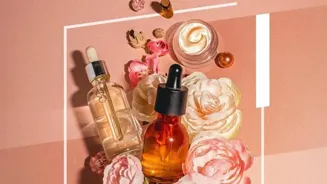Delve into the Science of Anti-Aging: What Truly Works? Unravel the mystery behind youthful skin and make informed choices
Okay, folks, let's face it. We all want to hold onto our youthful glow for as long
as possible. The market is flooded with anti-aging creams, serums, and what-not, all promising to turn back the clock. But how much of it is actually science, and how much is just clever marketing?
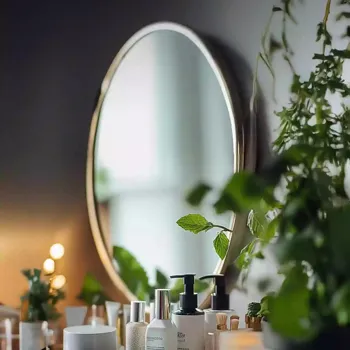
Let's dive deep and separate the fact from the fiction, in good old Indian style.
Aging is complex; collagen loss, slow cell turnover, and genetics impact skin
The first thing to understand is that aging is a complex process. It's not just about wrinkles; it's about changes happening at the cellular level. Our skin loses collagen and elastin, the proteins that keep it firm and bouncy.
Cell turnover slows down, meaning it takes longer for new, healthy skin cells to replace the old ones. Environmental factors like sun exposure and pollution also play a major role, damaging our skin over time. Then there's genetics – thanks, Mom and Dad! – which determines how quickly we age.
So, any product claiming to be a miracle cure is probably exaggerating a bit.
The aging process is multifaceted, involving decreased collagen production impacting skin elasticity with noticeable wrinkles and sagging, slower cell turnover reducing skin radiance, and constant environmental damage causing age spots and pigmentation.
Genetics significantly influence individual aging rates, making complete reversal an unrealistic expectation.
Science-backed ingredients combat skin aging: retinoids, Vitamin C, peptides, niacinamide
So, how can we combat these changes? The good news is, science has identified several ingredients that really do make a difference. One of the most well-researched and effective is retinoids, which are derivatives of Vitamin A.
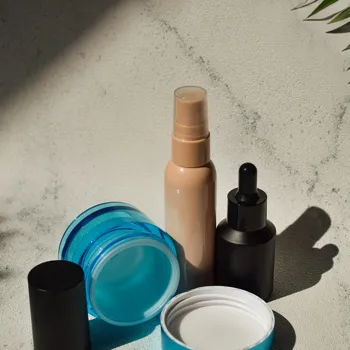
Retinoids work by speeding up cell turnover, stimulating collagen production, and reducing the appearance of fine lines and wrinkles. They can be a bit irritating at first, so it's best to start with a low concentration and gradually increase it as your skin gets used to it.
Another powerhouse ingredient is Vitamin C, a potent antioxidant that protects the skin from free radical damage caused by the sun and pollution. Vitamin C also helps to brighten the skin and even out skin tone.
Then, there are peptides, which are short chains of amino acids that can stimulate collagen production. They are generally well-tolerated and can be a good option for people with sensitive skin.
Niacinamide, a form of Vitamin B3, is another superhero ingredient that helps to improve skin barrier function, reduce inflammation, and minimize pores. Retinoids accelerate cell turnover, boost collagen, and diminish fine lines.
Vitamin C neutralizes free radicals, brightens skin, and reduces sun damage. Peptides stimulate collagen and suit sensitive skin. Niacinamide strengthens the skin barrier, reduces inflammation, and minimizes pores.
Understanding how these ingredients work, helps in making informed decisions about anti-aging treatments.
Beware of skincare claims; prioritize proven ingredients for real anti-aging benefits
Now, let's talk about the stuff that might not be worth your hard-earned rupees. Many products are packed with fancy-sounding ingredients that have little to no scientific evidence to back up their claims.
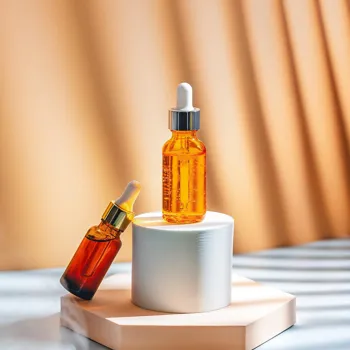
For example, some creams contain plant extracts that are touted for their anti-aging properties, but the studies supporting these claims are often weak or conducted in a lab setting, not on actual human skin.
Other products rely on superficial results, like temporarily plumping up the skin with hyaluronic acid. While hyaluronic acid is a great hydrator, it doesn't actually reverse the signs of aging. It just gives the skin a temporary boost of moisture.
And don't fall for products that promise instant results. Real anti-aging benefits take time and consistent use to become visible. Be wary of extravagant claims, prioritizing well-researched ingredients like retinoids, Vitamin C, and peptides. Plant extracts might lack substantial evidence.
Hyaluronic acid offers hydration, not anti-aging. Visible changes take time and consistent use.
Sunscreen shields from UV damage, preventing premature aging
Sunscreen, sunscreen, sunscreen! I can't stress this enough. The sun is the number one cause of premature aging, so protecting your skin from harmful UV rays is the most important thing you can do to keep it looking young.

Choose a broad-spectrum sunscreen with an SPF of 30 or higher and apply it every day, even on cloudy days. Reapply every two hours, or more often if you're swimming or sweating.
And don't forget to protect other areas of your body, like your neck, chest, and hands, which are also exposed to the sun. Diet and lifestyle also play a significant role in aging. Eating a healthy diet rich in fruits, vegetables, and antioxidants can help to nourish your skin from the inside out.
Getting enough sleep and managing stress are also important for maintaining a youthful appearance. And avoid smoking and excessive alcohol consumption, which can both accelerate the aging process. Sunscreen shields from UV damage, preventing premature aging.
Diet, rich in fruits and vegetables, nourishes the skin internally. Sufficient sleep and stress management are essential. Avoid smoking and excessive alcohol.
Understanding anti-aging: no magic, science-based skincare tips for healthy aging
So, what's the bottom line? There's no magic bullet when it comes to anti-aging. But by understanding the science behind aging and choosing products with proven ingredients, you can definitely slow down the process and maintain a healthy, youthful glow.
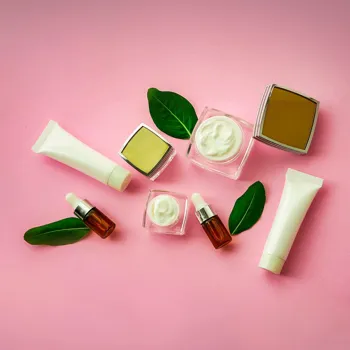
Remember to manage your expectations and be patient. It takes time and consistency to see results. And don't forget the importance of sunscreen, a healthy diet, and a balanced lifestyle.
Also, it is important to consult a dermatologist before starting any new skincare regimen, especially if you have sensitive skin or any underlying skin conditions. They can help you create a personalized plan that is tailored to your specific needs and concerns.
Anti-aging isn't about chasing unrealistic ideals, it is about embracing a proactive approach to skin health and overall lifestyle. Focus on long term well-being and happiness.
Aging is natural; prioritize well-being for a youthful appearance
The journey of aging is inevitable, but maintaining a youthful appearance is certainly achievable. Make informed choices that work best for you, while prioritizing long term well-being and happiness.
AI Generated Content. Glance/InMobi shall have no liability for the content